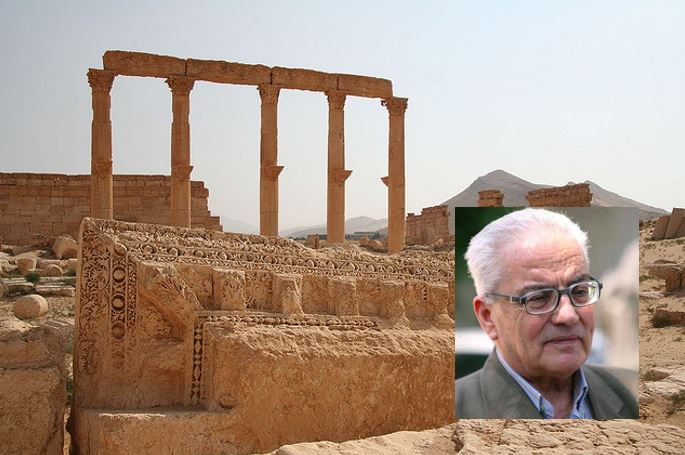
Islamic State militants in Syria beheaded 82-year-old antiquities expert Khaled al-Assad and hung his mutilated body on a Roman column in the main square of Palmyra after he refused to reveal where valuable artifacts had been moved for safekeeping.
Asaad had been held prisoner by ISIS for the past month, according to various reports, including detailed stories in the Guardian and the New York Times. The public beheading reportedly took place Tuesday, August 18.
Asaad’s murder is the latest atrocity perpetrated by the militant group, which has now taken over a third of both Syria and neighboring Iraq, having declared its own strict version of Islamic rule or “caliphate” on the territory it’s controlling.
ISIS views artifacts as idolatrous but has also been selling looted antiquities in order to fund its activities.
Syrian state antiquities chief Maamoun Abdulkarim told the Guardian that Asaad’s family informed him of the beheading. Asaad had worked for more than five decades as head of antiquities in Palmyra, a city northeast of Syria’s capital, Damascus with antiquities dating back to the neolithic period.
The report said ISIS supporters used social media to circulate a gruesome but unverified image of Asaad’s beheaded body, tied to a pole on a street in the city.
“Just imagine that such a scholar who gave such memorable services to the place and to history would be beheaded. . .and his corpse still hanging from one of the ancient columns in the centre of a square in Palmyra,” said Abdulkarim. “The continued presence of these criminals in the city is a curse and bad omen on the city and every archaeological piece in it.”
Asaad’s son-in-law Khalil Hariri said his father-in-law had been a member of President Bashar Asaad’s ruling Baath party since 1954. Asaad is survived by six sons and five daughters.